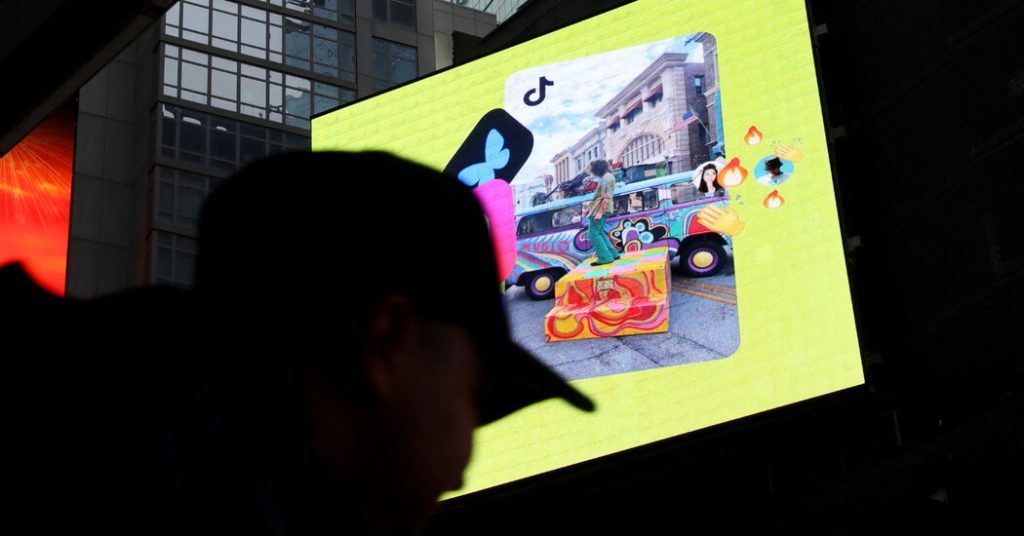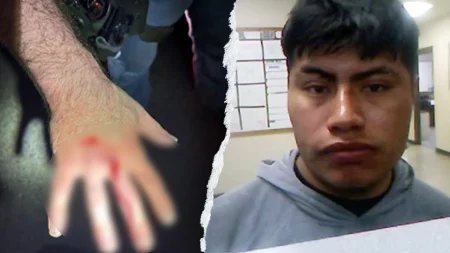The impending ban on TikTok in the United States culminated in a dramatic blackout of the app for American users just hours before the federal law was set to take effect. The popular social media platform, owned by Chinese internet giant ByteDance, displayed a message acknowledging the ban and expressing hope for a resolution with the incoming Trump administration. The app’s disappearance from U.S. app stores, coupled with the similar unavailability of its sister app, Lemon8, underscored the gravity of the situation. The Supreme Court’s decision on Friday to uphold the ban, which mandates ByteDance to sell TikTok by the deadline or face prohibition, left the company with few options and triggered the sudden shutdown. The ban stems from national security concerns surrounding TikTok’s Chinese ownership.
The blackout marked the culmination of a frantic period for TikTok, which had engaged in last-ditch efforts to appeal to both the outgoing Biden administration and the incoming Trump administration for a reprieve. The unprecedented nature of the ban, blocking an app used by over 170 million Americans virtually overnight, created widespread uncertainty about the immediate ramifications. The law, passed by Congress and signed by President Biden, includes provisions to penalize app store operators and internet hosting companies for distributing or maintaining TikTok, potentially leading to significant fines. TikTok had argued that even a temporary disruption could have devastating consequences, as users and creators might migrate to other platforms, potentially never returning.
Adding to the complexity was the timing of the ban, falling just days before the presidential transition. While the White House stated it saw no reason for immediate action from companies, the ultimate responsibility for enforcing the law would fall upon the incoming Trump administration. This created a period of limbo, further exacerbated by President-elect Trump’s statements suggesting a possible 90-day extension upon taking office, contingent on progress towards a sale to a non-Chinese owner. The feasibility of such an extension, given the ban’s already-enacted status, remained unclear. Adding another layer of intrigue was the possibility of an executive order from Trump to circumvent the ban altogether, with TikTok’s CEO expected to attend his inauguration.
The mood among TikTok users was one of disappointment and even grief, as many creators and users expressed their dismay at losing access to the platform. Alix Earle, a prominent TikTok creator, shared tearful videos lamenting the loss of the platform, describing it as more than just an app or a job, but a repository of memories and personal experiences. Other users spent their final moments on the app revisiting popular trends and sharing nostalgic montages, highlighting the significant role TikTok had played in their lives, particularly during the pandemic. The sudden blackout forced many creators to seek alternative platforms, with some turning to Instagram to maintain their online presence.
The ban’s impact extended beyond U.S. borders, becoming a trending topic on Chinese social media platforms. Commentators viewed the ban as a significant development in the online landscape, with some characterizing it as a dark moment for internet freedom. The U.S. government’s actions were seen as setting a precedent for silencing online voices under the guise of national security. In China, the situation was viewed as an early test for the incoming Trump administration, particularly concerning its relationship with China and its approach to regulating online platforms. The repercussions of the ban were expected to be far-reaching, impacting not only individual users and creators but also the broader landscape of social media and international relations.
The sudden disappearance of TikTok from the U.S. digital landscape left a void for millions of users and creators. The platform’s popularity, particularly among younger demographics, had carved out a unique space in the social media ecosystem, one that would be difficult to replicate. The scramble to find alternative platforms highlighted the significant role TikTok played in online content creation and consumption. The long-term implications of the ban, both for the future of social media and for U.S.-China relations, remained to be seen. The uncertainty surrounding potential extensions, legal challenges, and the incoming administration’s approach left the future of TikTok in the U.S. hanging in the balance.











